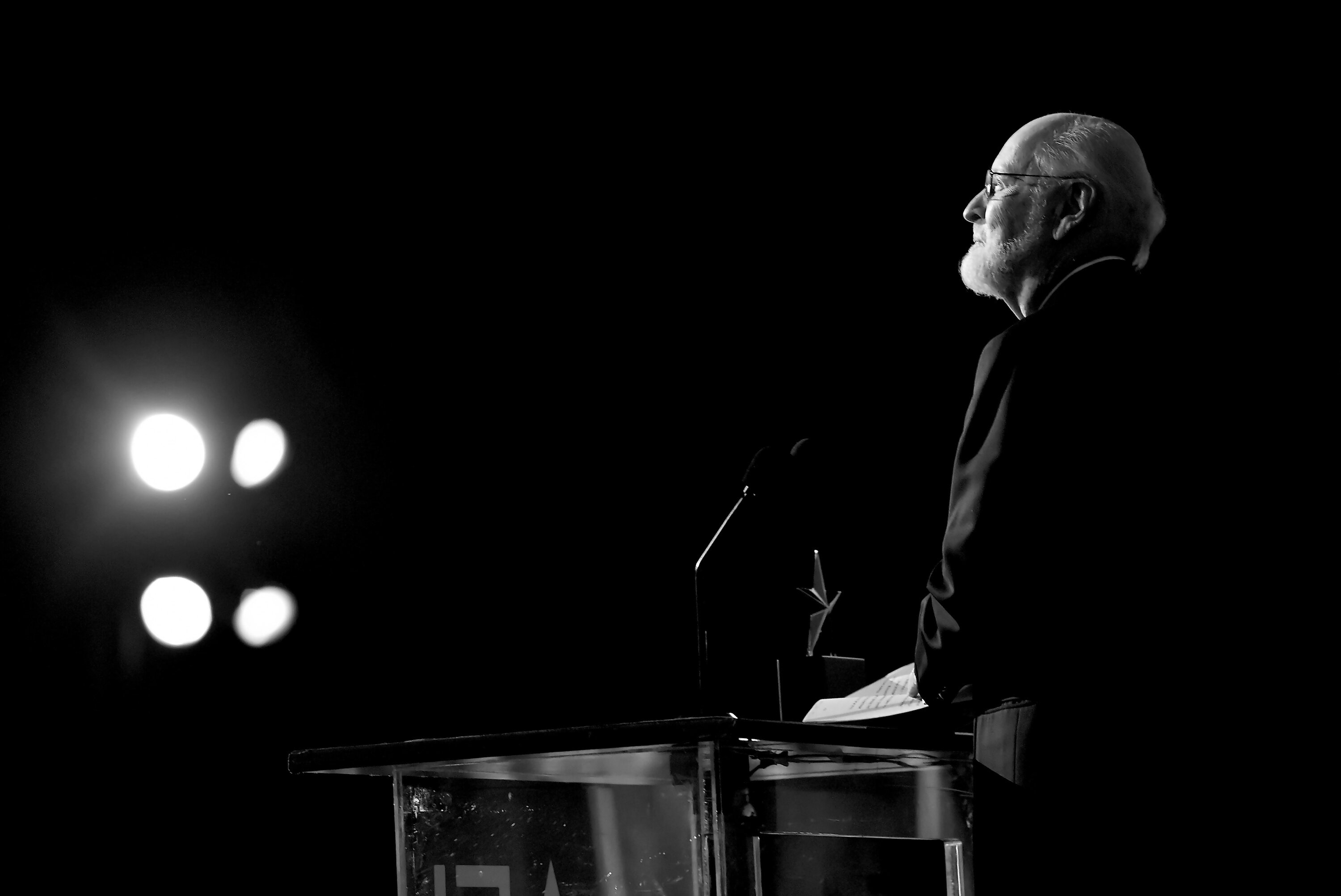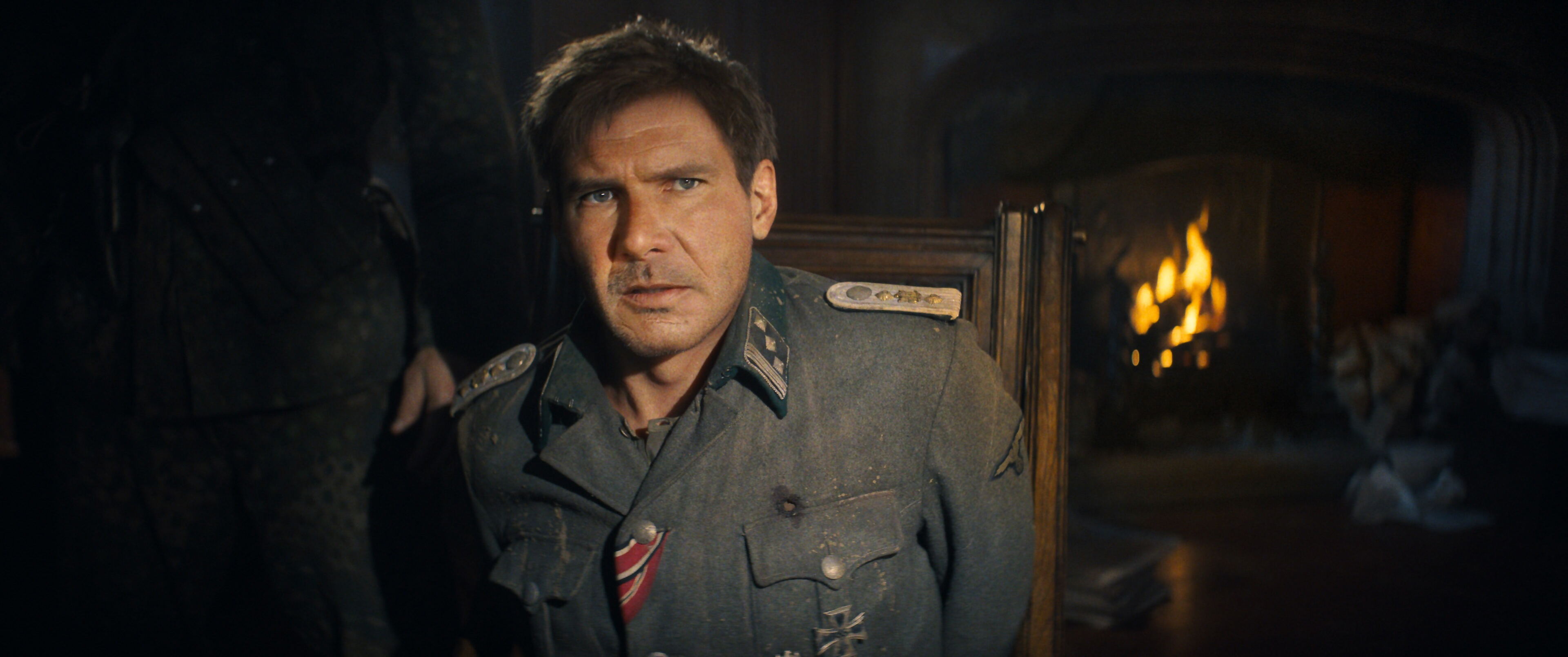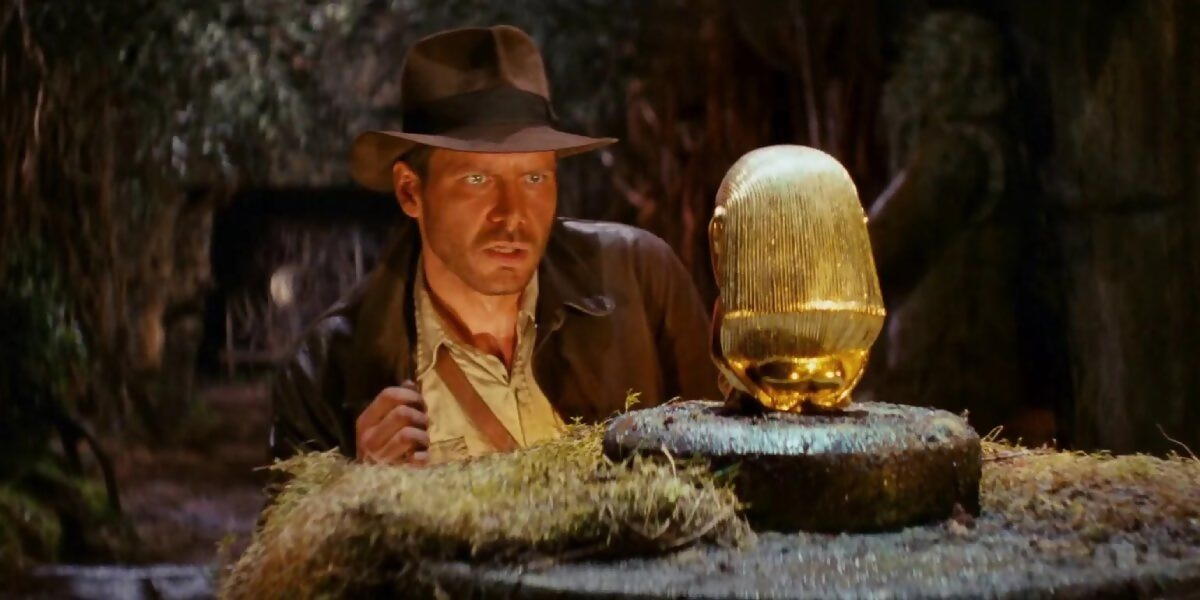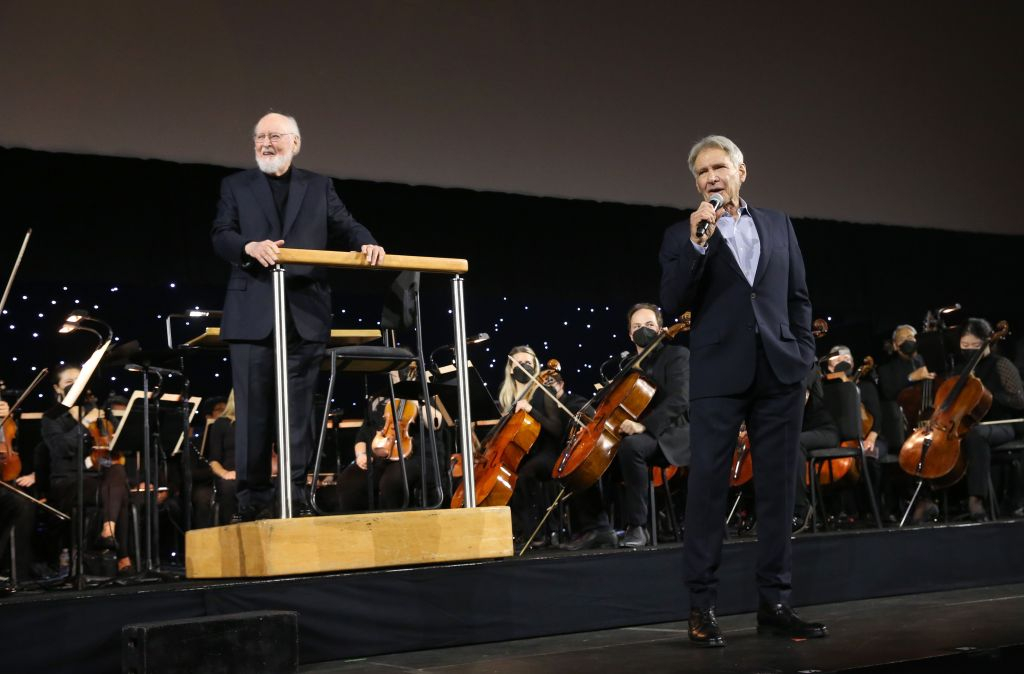
Indiana Jones and the Dial of Destiny sports John Williams’ fifth, and possibly final, score in the series. And the franchise wouldn’t be the same without him. Sean Wilson explores why John Williams is the heart and soul of the iconic franchise.
Whatever flaws Indiana Jones and the Dial of Destiny possesses (and it possesses plenty), it left this writer grinning from ear to ear. In fact, the beaming was initiated almost immediately during the movie’s much-vaunted opening sequence.
It’s a 25-minute-long, World War II-based set-piece that makes ample and ambitious use of a de-aged Harrison Ford as the younger Indy, all the while battling Nazis (yes, he still hates those guys), in, on and around a moving locomotive.
And yet, it wasn’t the (somewhat controversial) advent of de-ageing CG effects that left me euphoric. Rather, it was the hard work of an unseen magician: composer John Williams, whose music immediately activated a primal genetic memory and plugged me straight into a sense of childhood glee.

Credit: Walt Disney Studios Motion Pictures
This will come as no surprise to long-time fans of the Indiana Jones series. Williams has been there alongside Ford, director Steven Spielberg and creator George Lucas since the franchise’s inception in 1981’s Raiders of the Lost Ark.
Over the course of 43 years and four subsequent Indiana Jones movies, Williams’ skills have almost taken on the same mystique as the fabled Ark of the Covenant from the first film. That said, the composer’s deft hand with melody and rhythm is more inclined to tingle the spine than melt the face (although that may occur out of pure joy).
READ MORE: AI and digital face replacement | Is it about to destroy Hollywood?
For me, this love of Williams’ musical heritage kicked in at the age of seven, following a BBC TV broadcast of Raiders. I remember the build-up vividly: back when the Beeb used to use film clips as idents to build anticipation, it showed Ford famously running into extreme close-up in the Cairo marketplace as he pursues Karen Allen’s kidnapped Marion.
That’s all I needed to become hooked on Raiders and the subsequent films in the series.
Behind the score of all five Indiana Jones movies is Williams. He is the composer who infuses the soul into Dr. Jones’ wild adventures, having interlocked a quite astonishing number of themes and motifs together throughout the course of the franchise.
The brassy punch of ‘The Raiders March’ is, of course, the binding element, and one of the most justly celebrated movie themes of all time. It’s an anthem of inspiration, a call to arms to get up, see the world and explore. It was famously stitched together, at Spielberg’s suggestion, from two standalone pieces.

Credit: Walt Disney Studios Motion Pictures
That said, it’s not just about ‘The Raiders March’. In truth, the sheer scale of Williams’ achievement on the series would be enough to make the likes of Wagner and Mahler blush.
From the tritonal, portentous menace of the Ark theme in Raiders to the bone-chilling Sanskrit chants in The Temple of Doom (1984) and the warm, Aaron Copland-aping father/son tones of The Last Crusade (1989), Williams has remained a storytelling exemplar. Even the much-maligned The Kingdom of the Crystal Skull (2008), flailing with its awkward comic timing and pathetic CG monkey-swinging, benefits hugely from Williams’ insidious, otherworldly theme for the titular artefact.
It’s Williams who transfigures every meaty fistfight into a life-or-death conflict. It’s Williams who connects us with the might of centuries-old artefacts that have the power to change the world, for good or for ill. And it’s Williams who uses the quintessential romantic orchestral idiom, honed via an acute awareness of both cinematic and concert hall tradition, to connect us with Indiana’s ineffable sense of bravado in the face of almost insurmountable odds.
Little wonder that during The Dial of Destiny’s American premiere, Williams shared the spotlight with Ford, Spielberg and incumbent director James Mangold. It’s relatively unusual for a premiere to showcase a movie’s composer in such a grandiose light, but Williams’ illustrious heritage earned him a place on the podium. He delivered a rousing medley from the series and showcased The Dial of Destiny’s whimsical new theme for Phoebe Waller-Bridge’s Helena, Indy’s goddaughter, which first debuted in 2022.

Harrison Ford of the upcoming fifth installment of the “Indiana Jones” franchise honors composer John Williams on his 90th birthday at Star Wars Celebration in Anaheim, California on May 26, 2022. (Photo by Jesse Grant/Getty Images for Disney)
“Were it not for the many crucial bursts of dramatic symphonic accompaniment,” Spielberg said of the Raiders soundtrack in 1981, “Indiana Jones would surely have perished in a forbidding temple in South America, or in the oppressive silence of the great Sahara Desert.” Nevertheless, Jones did not perish but listened carefully to the Raiders score.
“Its sharp rhythms told him when to run. Its slicing strings told him when to duck. Its several integrated themes told adventurer Jones when to kiss the heroine or smash the enemy. All things considered, Jones listened… and lived. John Williams saves yet another life and gives our picture, Raiders of the Lost Ark, a new, refreshing life of its own,” Spielberg added.
On a more humorous note, during a 2016 AFI tribute to Williams, the typically laconic and quick-witted Ford joked that the composer’s typically rousing music helped get him through a routine colonoscopy.
Flippancy aside, Williams’ Indiana Jones scores have transcended their given medium to permeate the popular consciousness. It’s a clear testament to the composer’s collaborative spirit and storytelling acumen as he exploits the inherent connotations of every specific instrument for all they’re worth. The heraldic nature of the brass conveys heroism, the dynamic range of the strings conveys an innately human principle, and the staccato crack of the snares conjures up the militaristic onslaught of those dastardly Nazis.
There are too many treasures from all the scores to sum up here. Suffice it to say, The Dial of Destiny is as much a victory lap for Williams as it is for Ford. Yes, there are new themes for Helena, the titular dial and new Nazi enemy Voller (Mads Mikkelsen). And yet, fans are sure to be even more delighted in how Williams brings his musical constructs full circle back to the original adventure scores with which he made his name.
READ MORE: James Mangold, Harrison Ford and co. bid farewell to Indiana Jones
There were rumours that Williams would retire after scoring the fifth Indiana Jones movie, but he has since deflected his own claims, claiming: “If they do an Indiana Jones 6, I’m on board.”
Put simply, he is the soul of the series. Or, to put it in the words of Steven Spielberg: “His music gave such detail to every single heart-stopping moment and bonded all these films together to give them a musical identity.”
There can surely be no greater validation of a composer’s imprimatur on a given movie or, indeed, franchise.
Indiana Jones and the Dial of Destiny is in cinemas 28 June.




